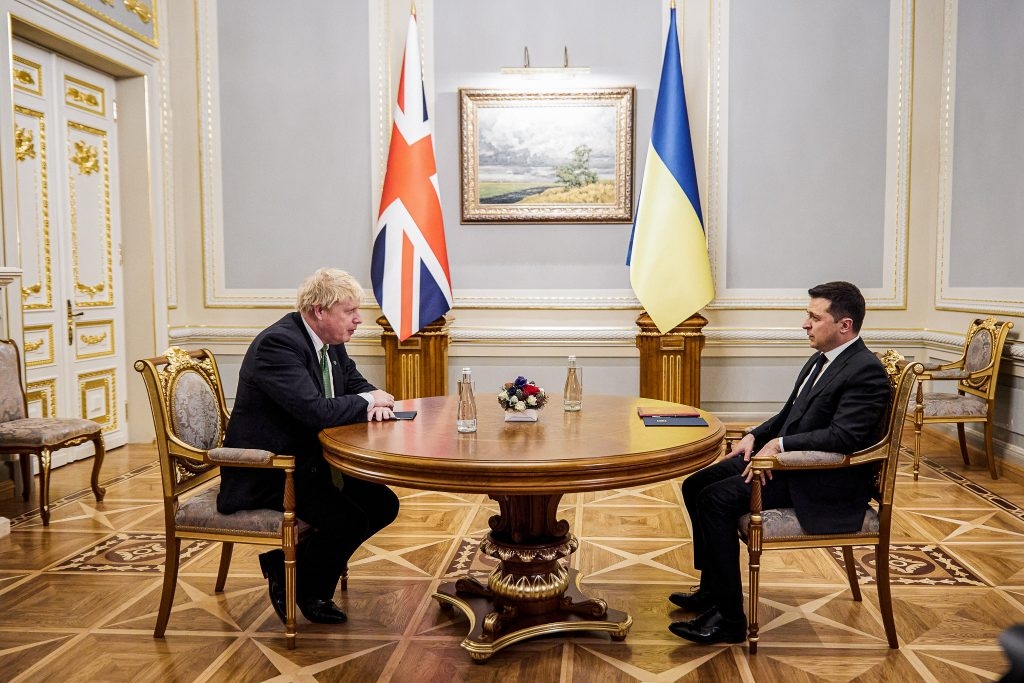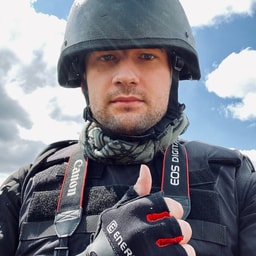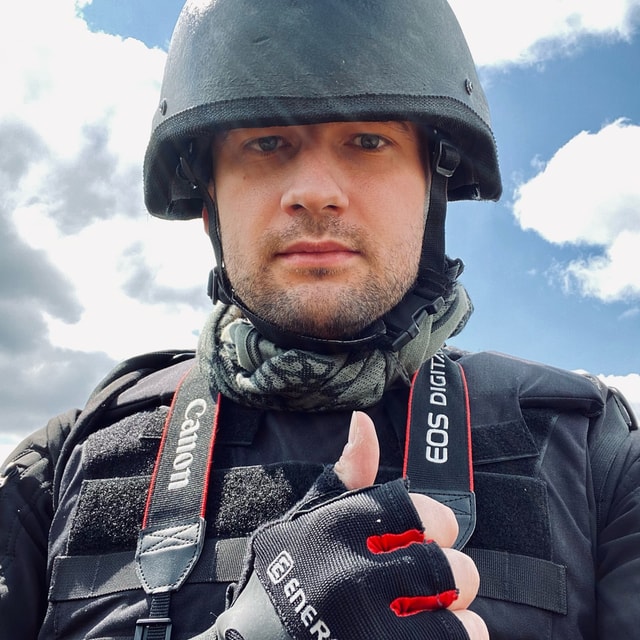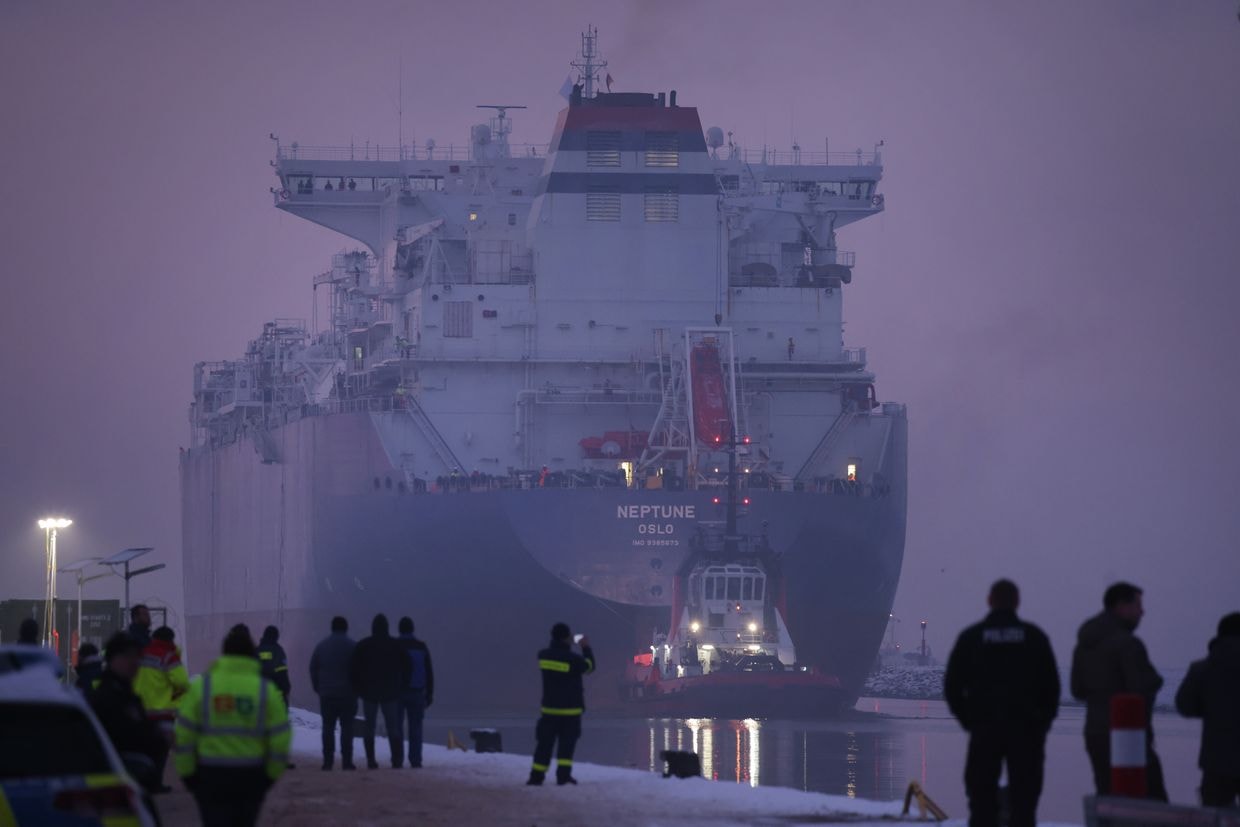UK’s defense aid to Ukraine skyrockets amid Russia threat

This January could be declared the month of Britain in Ukraine.
Ever since pictures emerged on the internet showing the Royal Air Force’s transport aircraft at the Boryspil Airport outside Kyiv on Jan. 19, the United Kingdom’s popularity in Ukraine soared into the stratosphere.
For the cargo pallets on the runway contained NLAW advanced anti-tank weapons – the U.K. has delivered as many as 2,000 in a series of flights.
This was one of the biggest shipments of lethal weapons to Ukraine, delivered during a grim moment, when the country is tensely anticipating a possible all-out invasion by over 100,000 Russian troops surrounding it.
Facebook feeds in the country exploded with a short phrase in Ukrainian, Russian, and English: “God Save the Queen!”
At the peak of Ukrainians’ fascination with the U.K., British Prime Minister Boris Johnson is visiting Kyiv on Feb. 1 to meet with President Volodymyr Zelensky. The warm welcome he will get in Ukraine will be a stark contrast to Johnson’s problems at home, where he is facing the worst crisis of his career over reported lockdown violations.
Ukraine has every reason to be ecstatic about the aid sent by the U.K. The NLAW airlift is seen as a strong political move that may help prevent the worst or at least give the Ukrainian military a fighting chance against the invading power.
As Ukrainian officials and experts see it, the U.K. government made a swift step shedding the bureaucratic acrimony and sending Ukraine what it needs most.

These advanced, self-guided weapons will fill the gap in Ukraine’s arsenal of light, easy to use and highly mobile tank killers, along with the FGM-148 Javelin systems provided by the United States.
Read more: What we know about British tank killers likely sent to Ukraine
Both are expected to be very effective against Russian armor, especially in complicated terrain and the urban environment.
In other words, NLAWs can ensure something that the Ukrainian military call “the tankman’s worst nightmare” — the ability of infantry to lurk among ruins and kill the machinery without being even noticed.
“Since we fall short of strong air defense, in the event of a large attack, Russian land forces would surely go in,” Andriy Zagorodniuk, Ukraine’s defense minister in 2019-2020, said.
“And it would be our mission to meet them on the ground. Therefore, we would need such ‘fire-and-forget’ weaponry to make their rush into the country unsuccessful.”
Outnumbered and outgunned, the Ukrainian military is likely to shed its usual maneuver warfare tactics in such a conflict, Zagorodniuk believes. Russia is expected to enjoy full superiority in the air. Large and concentrated Ukrainian combat formations would be subject to devastating attacks from above.
“It is very likely that our leadership would opt to switch to small group tactics,” says Zagorodniuk.
“So light, mobile systems like the NLAWs would help us prevail. Small units would attack Russians from all directions. The enemy would find it very hard to understand where another strike should be expected from.”

“Enemy surveillance, including satellites, might spot a brigade, or a battalion, on the march,” he adds.
“But when it comes to a couple of trucks that might also be civilian, the enemy can hardly tell. And airstrikes would be far less effective as the Russians won’t be able to see where Ukrainian squads are. This can help us.”
Just days after the NLAWs’ delivery, the Ukrainian military, guided by British instructors started mastering the weapons.
The armed forces carried out the first field day at the Yavoriv training range as early as Jan. 28, successfully destroying several old defunct vehicles and self-propelled guns.
According to the military, the British have already trained 40 new Ukrainian NLAW instructors and 20 more are expected to join them soon. In general, the UK’s Operation ORBITAL in Ukraine has provided training to nearly 22,000 troops since 2015.
Read more: British instructors train Ukrainian military to operate NLAW tank killers
But the tank killers were just one gift. The U.K. continued making headlines for its massive contribution to the resurrection of Ukraine’s navy, nearly 80% of which was lost in Russia’s annexation of Crimea in 2014.
The Ukrainian parliament on Jan. 27 ratified an agreement with the U.K. on getting a 10-year £1.7-billion loan to procure warships and create infrastructure for new naval bases in the Azov and the Black seas. This was also one of the biggest deals of its kind that Ukraine has signed since Russia’s war began.
Under the agreement, the U.K. would provide Ukraine with two of the Royal Navy’s Sandown-class minehunters, HMS Blyth and HMS Ramsey, as well as manufacture eight new, fully equipped missile boats and a frigate.
Ukraine’s navy expects to get the first minehunter as soon as 2022. It will get a new flag and begin service immediately.











